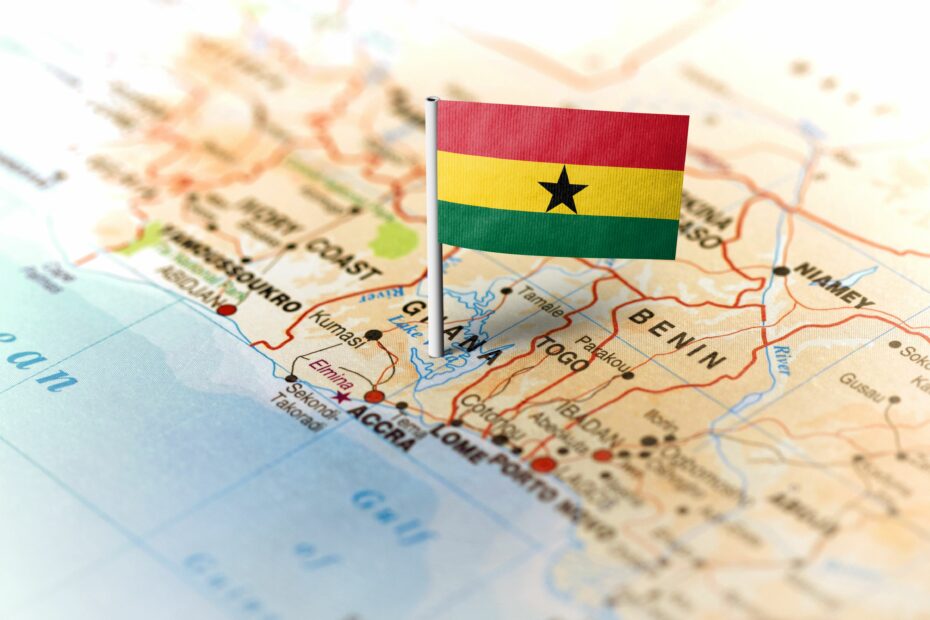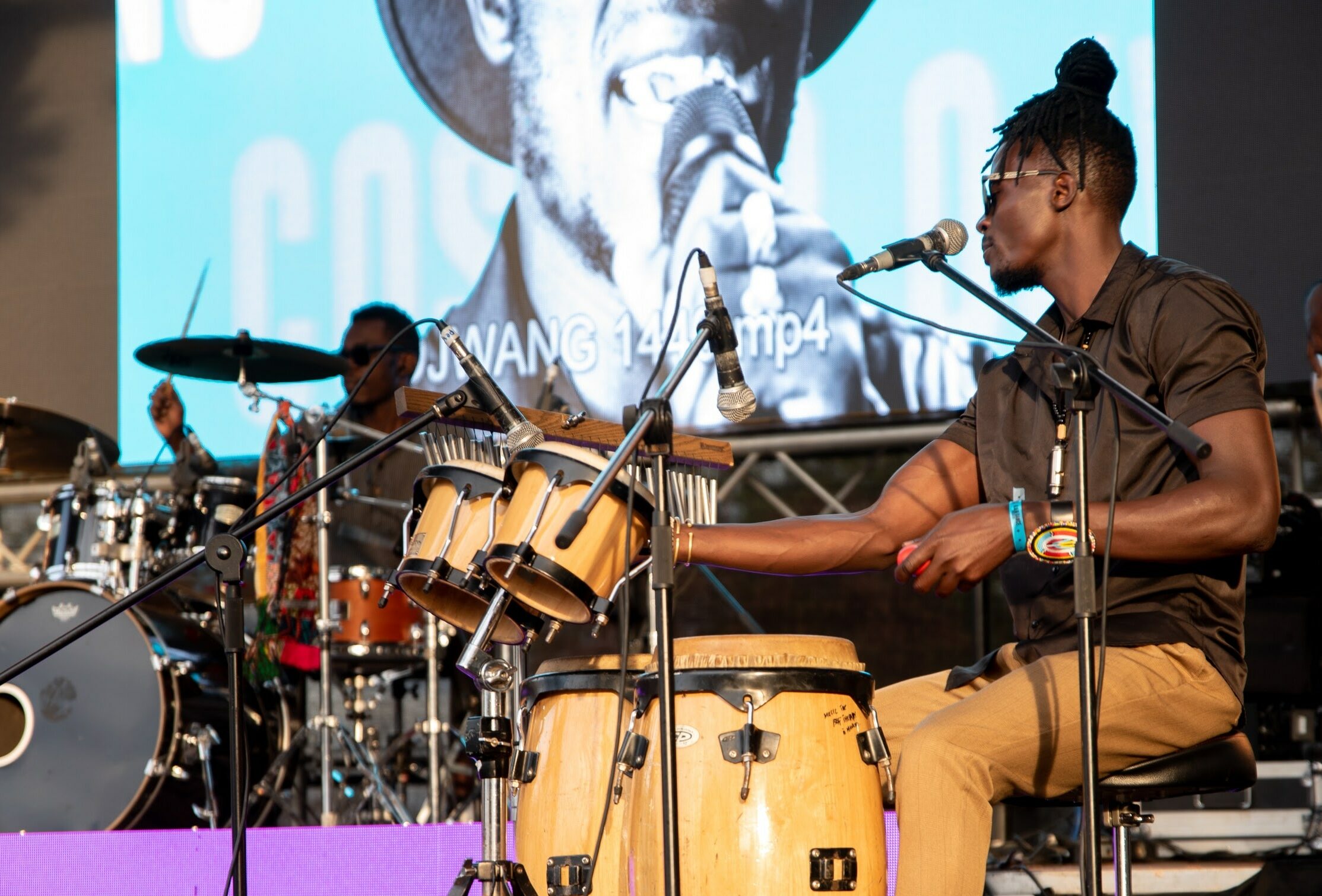From the western part of Africa, Ghana is more than just a country of lustrous gold mines and cocoa plantations. It’s a nation where sun-drenched savannahs meet azure skies, where time-honored traditions blend seamlessly with a dynamic, modern society, and where the music of life plays a rhythm that is uniquely, undeniably, Ghanaian. Join us as we embark on a journey to explore the different charms of Ghana.
Geography and Climate
Ghana is graced with a diverse geography, stretching from the coastal plains in the south, through the verdant rainforests and the gently rolling savannah grasslands, to the arid Sahelian scrublands of the north. The country is traversed by a number of rivers and streams, the largest being the Volta River, which is also home to Lake Volta, one of the world’s largest man-made lakes. In the north, you will find the sparsely vegetated savanna, while the south is dominated by thick forests interspersed with cocoa farms and wildlife reserves. Read Also: Ghanaian Hollywood Stars: 7 names you need to know
On the subject of climate, Ghana experiences a tropical climate, with the coastal areas having relatively consistent temperatures year round, averaging around 27°C (80°F). The two main seasons are the wet and the dry seasons. The wet season usually starts in April and ends in mid-November, while the dry season, characterized by the hot harmattan wind blowing from the Sahara Desert, runs from November to March. Despite the hot and humid climate in the lowlands, the weather gets considerably cooler in the northern regions and the highlands.
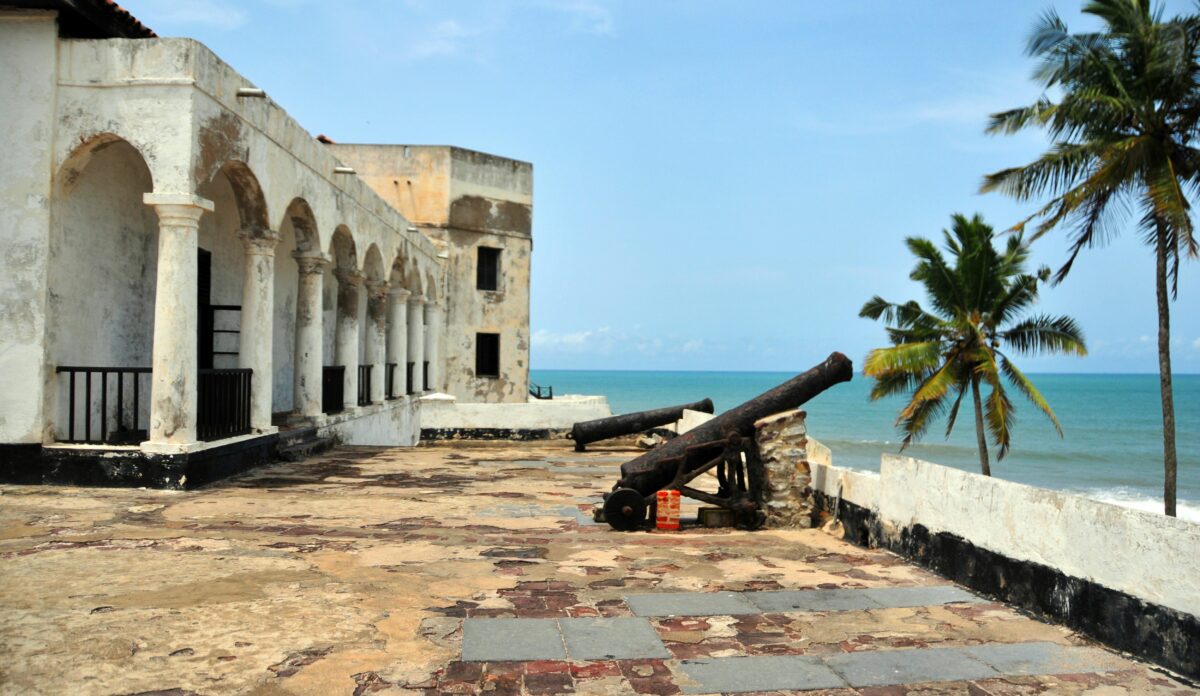
History: From the Ashanti Empire to Independence
Ghana’s rich history is a narration of powerful empires, colonial rule, and the fight for freedom. The story begins with the ancient kingdoms that flourished in the region, the most prominent among them being the Ashanti Empire. The Ashanti, known for their intricate gold work and kente cloth, held significant power in the region from the 17th to the late 19th centuries.
The arrival of Europeans on the Gold Coast, as Ghana was then known, marked a turning point in its history. First came the Portuguese in the late 15th century, followed by the Dutch, Danes and the British, all attracted by the region’s abundance of gold and slaves. The British eventually emerged as the dominant colonial power, prompting a series of wars with the Ashanti, known as the Anglo-Ashanti Wars.
The 20th century saw the rise of nationalist movements. Inspired by leaders such as Kwame Nkrumah, the people of Ghana waged a peaceful struggle against colonial rule, culminating in independence on March 6, 1957. This event was significant as Ghana was the first country in Sub-Saharan Africa to achieve this feat, setting a precedent for other African nations. Today, Ghana is a democratic republic known for its vibrant culture and steady economic growth, yet its rich history continues to resonate in its everyday life.
Culture and Traditions
Ghana’s culture and traditions paint a colorful mosaic of ethnic diversity, reflecting a rich heritage steeped in ritual, music, and dance. The country is a melting pot of over 100 ethnic groups, each with its distinct customs and traditions. Among the most well-known are the Akan, who include the Ashanti and Fante, the Ewe, Mole-Dagbani, Guan, and Ga-Adangbe.
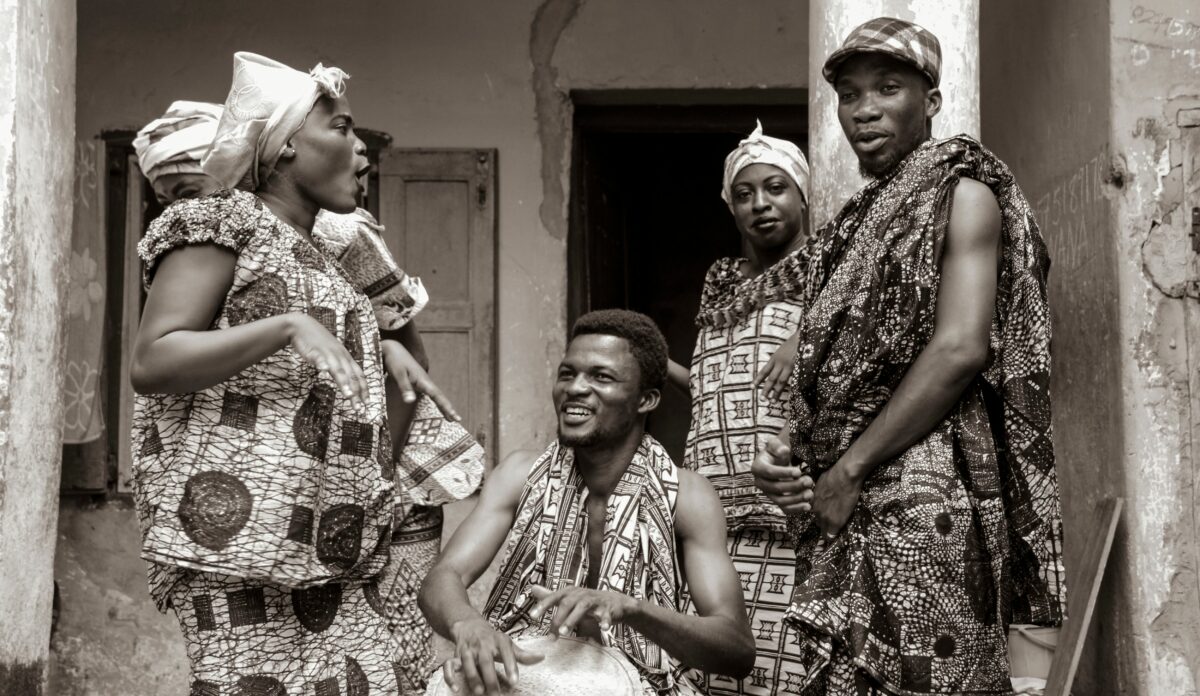
One of the most iconic elements of Ghanaian culture is the vibrant traditional attire, such as the Kente cloth. Originating from the Ashanti kingdom, Kente is admired worldwide for its intricate patterns and symbolic colors, each with unique meanings. Similarly, Adinkra symbols, another Ashanti innovation, are rich in philosophical and aesthetic significance and are often used in fabrics, pottery, and logos.
Music and dance are integral to Ghanaian life, featuring prominently in religious ceremonies, festivals, and social gatherings. Genres like Highlife and Hiplife blend local rhythms with foreign influences, creating a dynamic music scene that resonates across the African continent. The country also boasts a vibrant film industry, with “Ghallywood” producing popular films that showcase Ghanaian culture and storytelling.
Celebrations and festivals are also a significant part of Ghanaian culture, serving as a link to the ancestral past. Important events such as the Akwasidae festival by the Ashanti, Homowo by the Ga people, and the Hogbetsotso festival by the Ewes, are marked with grandeur, symbolizing renewal, purification, and unity. The annual Chale Wote Street Art Festival in Accra, showcases Ghana’s contemporary art scene through music, dance, and visual arts.
Finally, Asante Kingdom holds a special place in Ghanaian history, with its Golden Stool symbolizing unity and strength. In essence, Ghana’s cultural and traditional landscape is as diverse as its people, offering rich experiences that are a testament to the country’s vibrant and dynamic spirit.
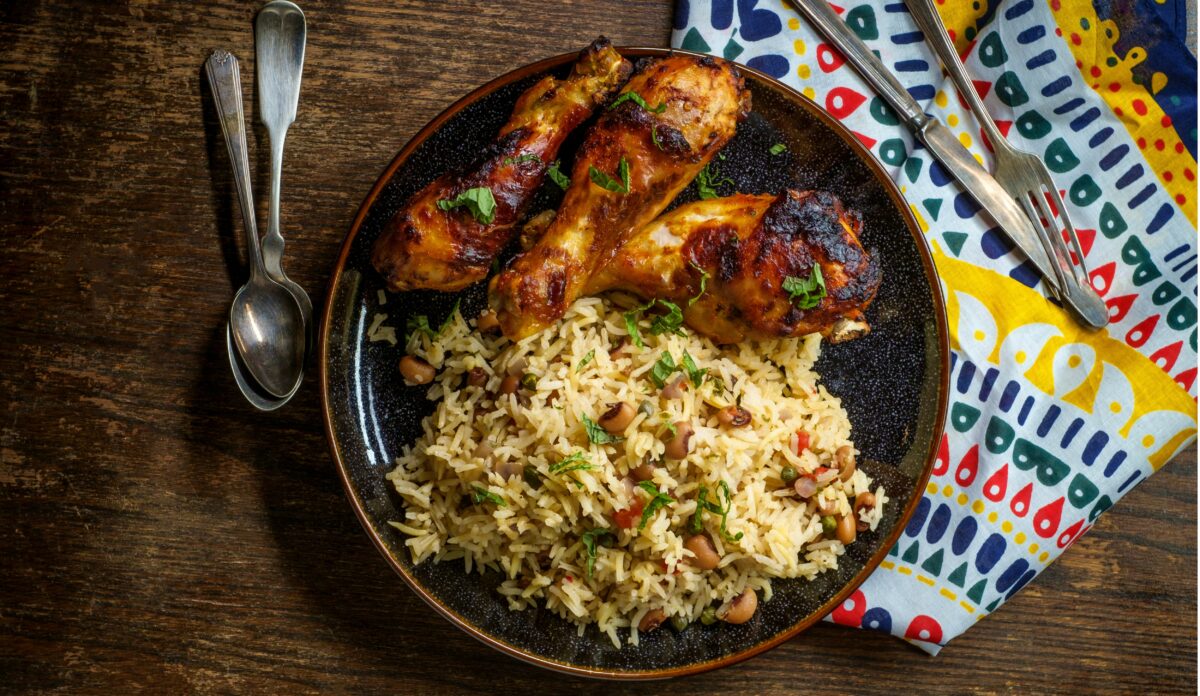
Food and Cuisine
Ghana’s cuisine is a culinary adventure reflecting the country’s rich cultural heritage and diverse resources. Rooted in staple foods such as maize, yam, plantain, and cassava, Ghanaian dishes are characterized by robust flavors, with a generous use of spices and local ingredients. A staple and much-loved dish is Jollof rice, a one-pot rice dish cooked in a tomato sauce and served with a variety of sides, from fried plantains to grilled chicken. Another popular dish is Banku and Tilapia, a comforting meal of fermented corn dough served with grilled tilapia and a spicy pepper sauce.
Ghana is also known for its soups and stews, such as the Groundnut Soup and the Palm Nut Soup, often served with Fufu, a soft dough made from cassava, yam, or plantains. Kenkey, a fermented cornmeal dumpling, is another similar staple, typically served with fish and a hot pepper sauce. Snacks like Kelewele (spicy fried plantains) and Akara (bean cakes) are also common street foods. Read Also: Burkina Faso: A Backyard of Vibrant Culture and Natural Beauty
The diverse ethnic groups in Ghana each have their signature dishes, contributing to country’s cuisine. For instance, the Ashanti are known for Ampesi, a yam or cocoyam stew, while the Ewe people are famous for Akple and Aborbi soup. The Ga people are renowned for their seafood dishes, such as Grilled Tilapia with Jollof rice, while the Fante people are known for their palm oil-based stews like Fante fantaakye (chicken stew).
When it comes to beverages, locals often enjoy Palm Wine, tapped from the sap of palm trees, and Akpeteshie, a local distilled drink. Non-alcoholic options include the refreshing Bissap (Hibiscus tea) and Asaana (Corn drink). Ghana’s cuisine is a true reflection of its diverse culture, offering a tantalizing culinary journey for visitors and locals alike.
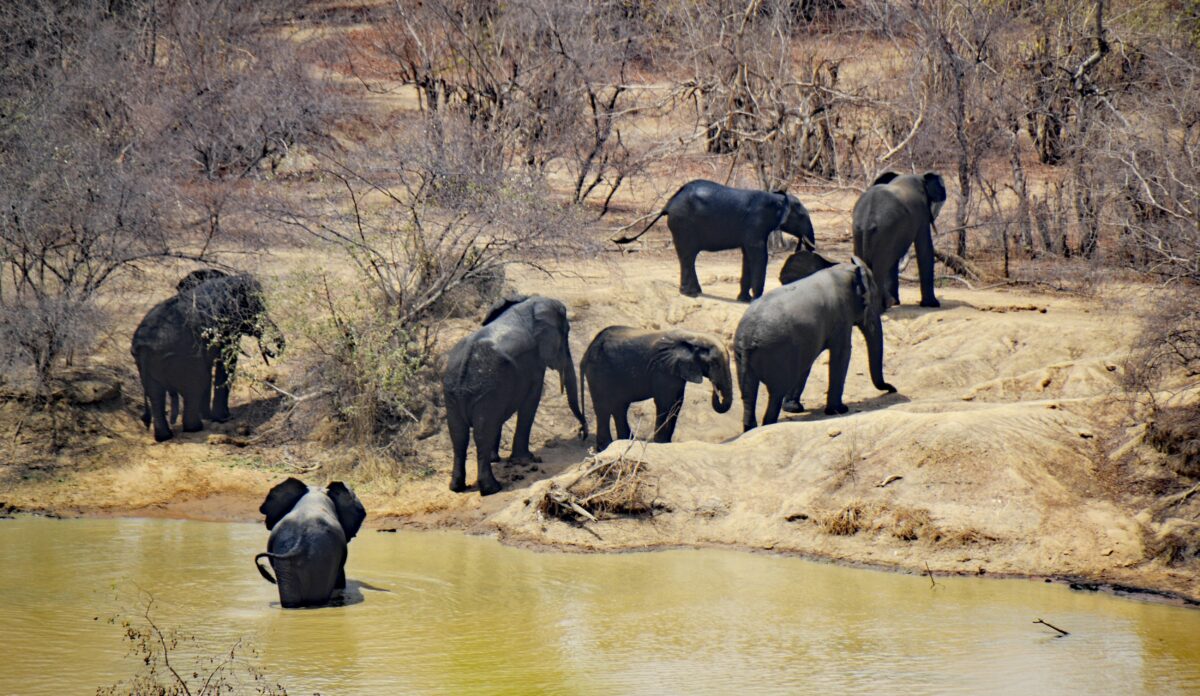
Tourism Attractions
When it comes to tourism, Ghana is also not left out as it hosts different historical sites, cultural scenes, and natural beauty. Its historic coastal forts, including Elmina Castle and Cape Coast Castle, are UNESCO World Heritage Sites that shed light on the tragic history of the slave trade. Kakum National Park, home to an exciting canopy walk and diverse wildlife species, offers an unforgettable eco-tourism experience. The Mole National Park is another wildlife haven where tourists can spot elephants, baboons, and other African animals in their natural habitat.
The vibrant city of Accra, the nation’s capital, is home to many attractions such as the National Museum, the Independence Square, and the colorful Makola Market. Kumasi, the cultural heart of the country, houses the Manhyia Palace, former residence of the Asante kings, and the Kumasi Central Market, one of the largest markets in West Africa.
Additionally, Ghana boasts beautiful beaches such as Busua and Kokrobite, perfect for relaxation and surfing. For those interested in traditional crafts, the Kente Weaving Village in Bonwire and the Bead-Making Centre in Odumase Krobo offer fascinating insights. The sacred Lake Bosomtwe, located within an ancient impact crater, is also a must-visit, serving as a spiritual site for the Ashanti people as well as an oasis of tranquility for visitors.
Finally, tourists shouldn’t miss out on experiencing Ghana’s vibrant festivals, such as the Panafest, a biennial event which showcases African arts and culture, and the Chale Wote Street Art Festival, a celebration of contemporary Ghanaian art. The tourist attractions in Ghana offer a blend of history, culture, and natural beauty, ensuring an enriching and memorable experience for every visitor.
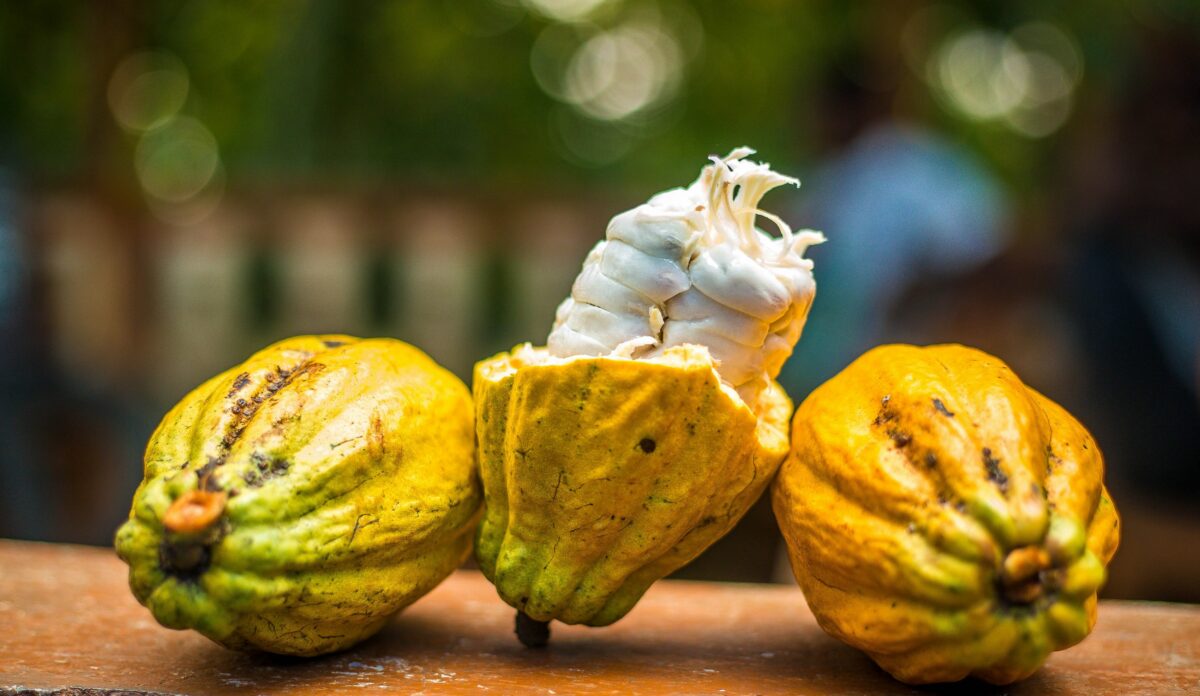
Economy: Cocoa and Beyond
Ghana’s economy is a diverse mix of agricultural, manufacturing, and service sectors. It is known globally as one of the leading producers of cocoa, contributing significantly to the global chocolate industry. In addition to cocoa, other agricultural products such as cashew nuts, palm oil, and rubber also play a crucial role in the country’s economy.
In recent years, Ghana has also made significant strides in the mining sector, particularly in gold production, where it ranks among the top 10 largest producers in the world. Diamonds, bauxite, and manganese are other valuable minerals mined in the country.
The oil sector in Ghana has seen considerable growth since the discovery of offshore oil reserves in 2007. The result has been an increase in revenue and foreign investment, contributing to the country’s economic growth.
Beyond natural resources, Ghana’s economy is also characterized by a thriving service sector, including telecommunications, finance, and tourism. With its rich history, vibrant culture, and picturesque landscapes, Ghana attracts tourists from around the world, contributing to job creation and income generation within the country.
However, like many emerging economies, Ghana faces challenges such as high unemployment rates, infrastructure deficits, and the need for improved education and healthcare services. Despite these hurdles, the country continues to show promise, bolstered by its political stability, abundant natural resources, and resilient spirit of its people. With the right policies and investments, Ghana is well-positioned to continue its journey towards sustainable economic growth and development.
Bottom Line
Ghana offers diversity in culture, history, natural beauty, and economic potential. Its welcoming cuisine tantalizes the taste buds with unique flavors and traditional cooking methods, while its historical and natural sites provide profound insights into the country’s past and the diversity of its ecosystem. Ghana’s economy, though faced with challenges, demonstrates resilience and promise, buoyed by a mix of resource-based industries and a growing service sector. As the country continues to evolve and grow, it remains a fascinating study of tradition and modernity co-existing, creating a sense that is uniquely and proudly Ghanaian.

